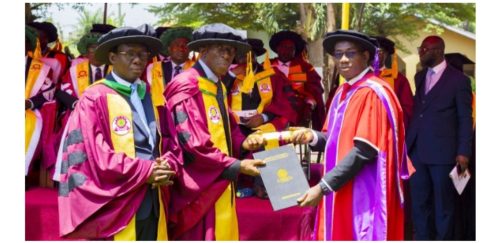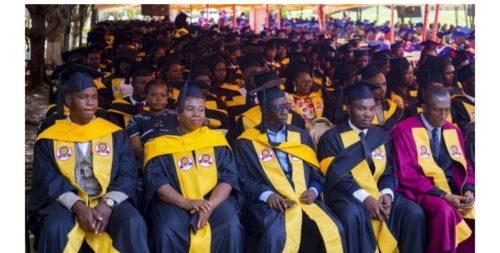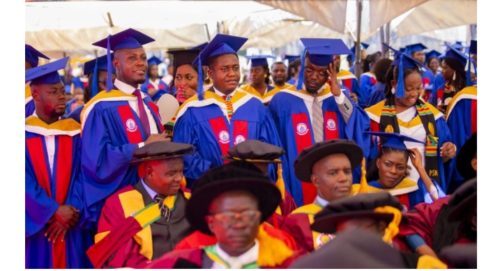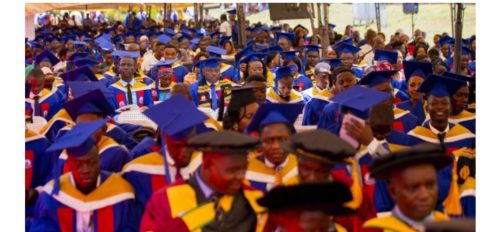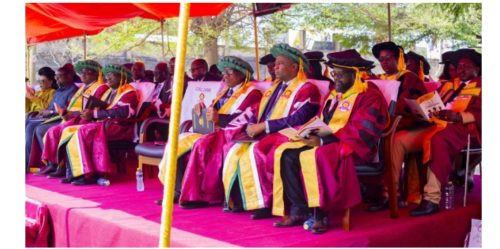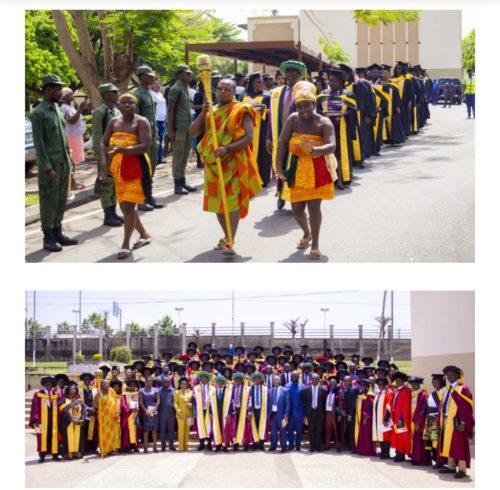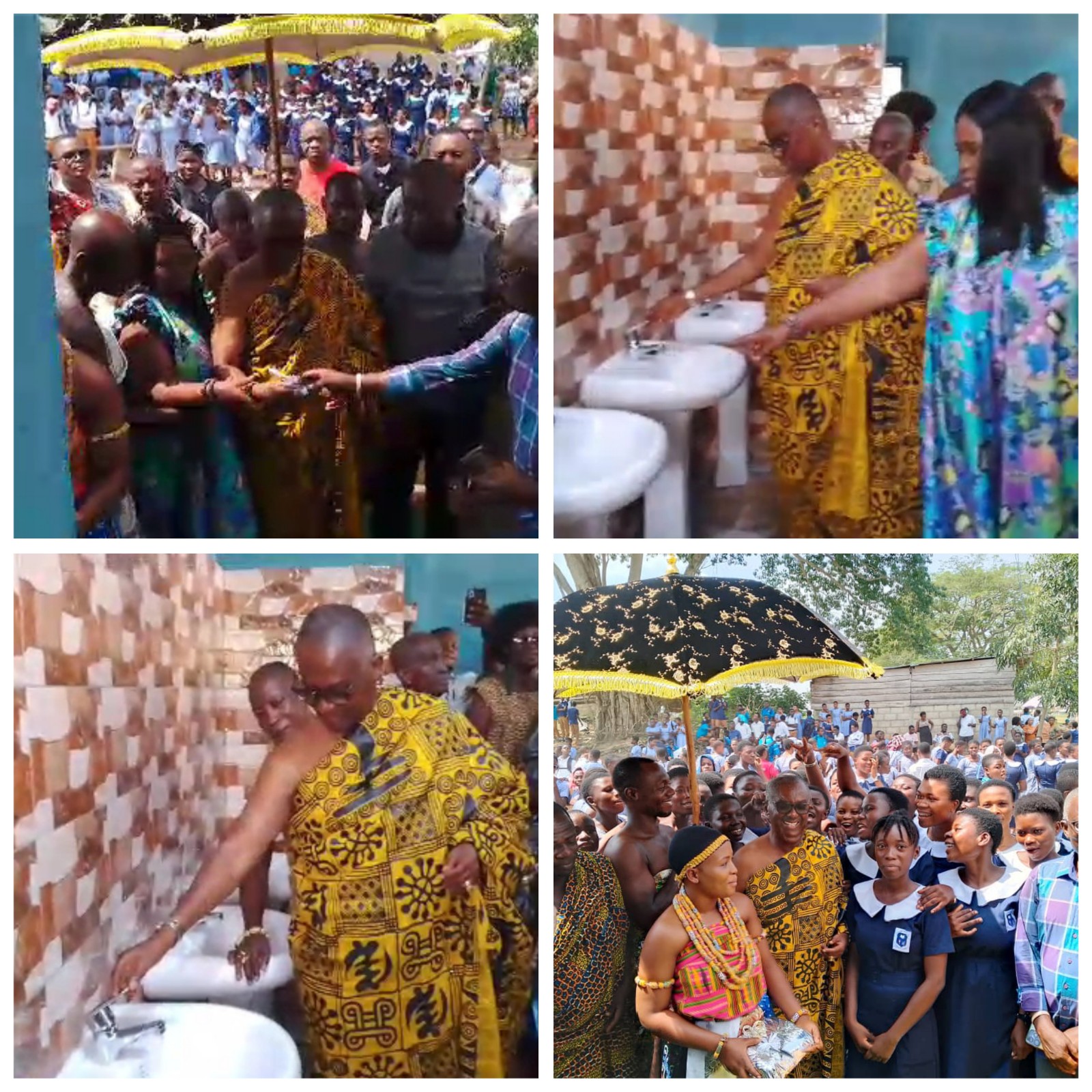AAMUSTED Graduates 1,190 during Second Congregation
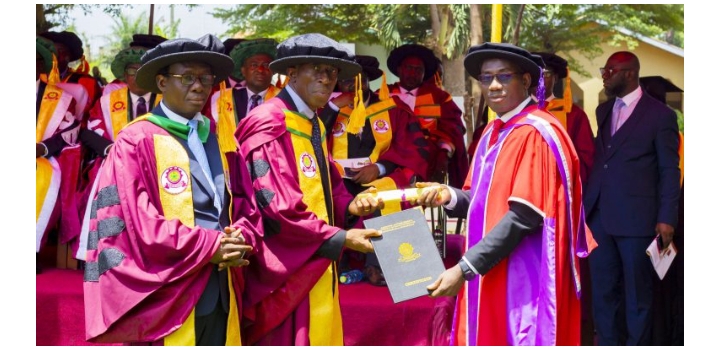
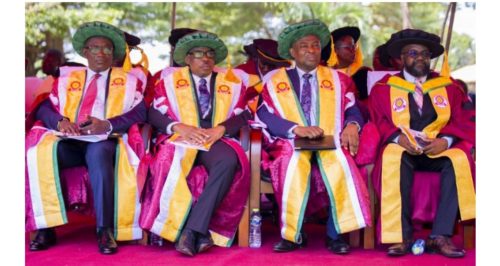
One thousand one hundred and ninety (1,190) students of the Akenten Appiah-Menka University of Skills Training and Entrepreneurial Development (AAMUSTED) graduated with Certificate, Diploma, Bachelor’s, Master’s, and PhD Degrees during the University’s Second Congregation on March 15, 2024. The graduates comprised one (1), Doctor of Philosophy (PhD), 486 Master’s Degrees, 244 Bachelor’s Degrees, 420 Diplomas, and 39 Certificates.

That was after the University of Education, Winneba (UEW) had graduated about 6,000 students of AAMUSTED on January 22, 2024, as part of the transition arrangements between AAMUSTED and UEW.
The Chairman of the Governing Council of AAMUSTED, Mr. Paul Kwasi Agyemang, in a welcome address, acknowledged the hard work and resilience of the graduates to acquire relevant knowledge, skills, and competencies in their respective academic fields over the period of their studies. He, thus, described the graduation ceremony, largely as an induction of the graduates into the world of work as agents of development, nationally and internationally.

He assured the nation that the University Council was committed to offering strategic direction toward achieving the vision and mission of the University. In that regard, he cited the development of necessary policy documents to facilitate the governance of the University and enhance teaching and learning as an area the Council was working tirelessly.
While calling on the government to come to the aid of the University to expand its infrastructure and complete stalled projects like the 3,500-capacity Convention Centre, he assured corporate Ghana and publicly-spirited individuals that the University was open to collaborating with them for mutual benefit. He said developing strong linkages between the University and industry or the community would ensure the holistic training of teachers.

The Vice-Chancellor of AAMUSTED, Prof. Frederick Kwaku Sarfo, for his part expressed confidence that the graduates were ready to join the nation’s workforce to contribute their quota to the development of their communities, Mother Ghana, and the world at large. “We have absolute confidence in you to achieve greatness if you go by all that we taught you,” he said proudly.
Prof. Sarfo encouraged them to start up their businesses so they did not become perpetual job seekers. “I urge you to continue to grow intellectually and as Entrepreneurs and listen to the little alarm inside you that sounds when stagnation and becoming a know-it-all begin to creep in; be self-confident and forward-looking,” he told them.

The Vice-Chancellor was very happy about the steady progress the University had made since becoming an autonomous institution in 2020. He said the University was strategically positioning itself to achieve its mandate and by that promote the Government’s TVET, Entrepreneurship, and Industrialisation Transformation Agenda.
He touted the concerted and united efforts of stakeholders, especially the Governing Council, Management, Faculty, Staff, and Students in achieving breakthroughs over the years.

Among them, he mentioned the acquisition and securing of all legal documents on the University’s land and the development of a master plan for its future use, the successful conduct of a national and internal university-wide Comprehensive Needs Assessment (CNA) to guide the strategic development of the University, resulted in the development of seventy-eight (78) new academic programmes related to TVET, ATVET and Entrepreneurial Education, and the consistent increases in student numbers from 17,639 in the 2020/2021 academic year to 30,453 in the 2023/2024 academic year.
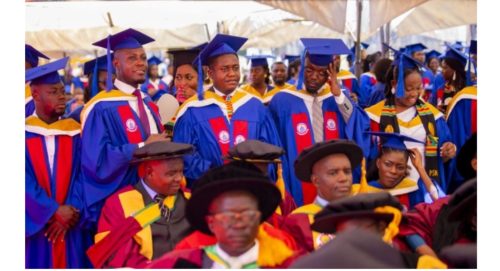
He also mentioned the strengthened collaborations and partnerships AAMUSTED has established with about thirty-five (35) local institutions and companies and about twenty-five (25) international agencies and institutions, progress made on ongoing physical infrastructures including the construction of an ultra-modern Entrepreneurship and Business Incubation Centre, currently at 89% completion stage; the 3,500-capacity Lecture Block, 85% completed; and the completion of the 1,500-seater lecture block to augment lecture hall facilities.

Although Prof. Sarfo stressed the extraordinary efforts the University was investing in its overall development, he said the University was in dire need of the Government’s support to improve infrastructure like Residential Halls indicating that the available halls in the University currently could not accommodate even five percent (5%) of the students.
